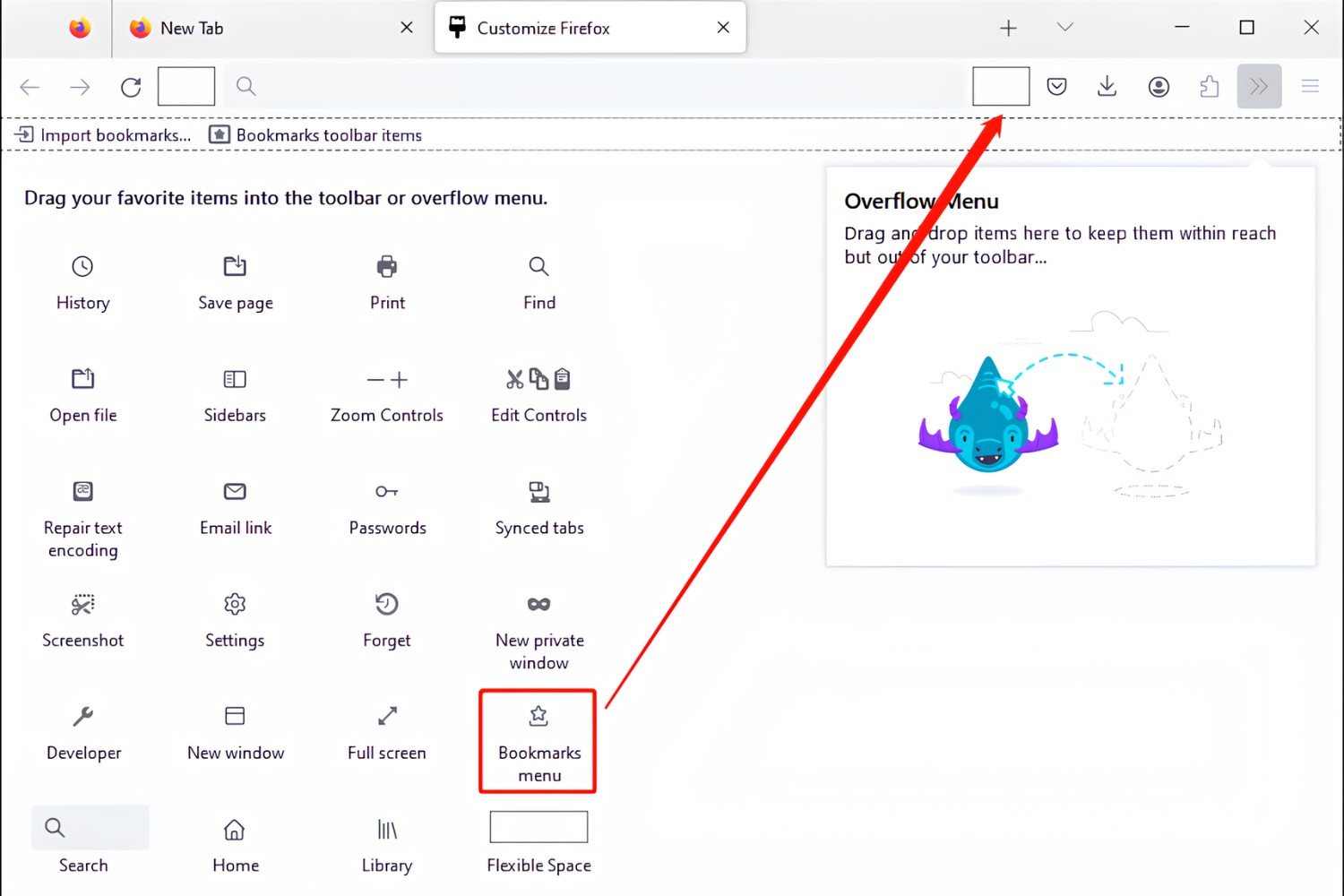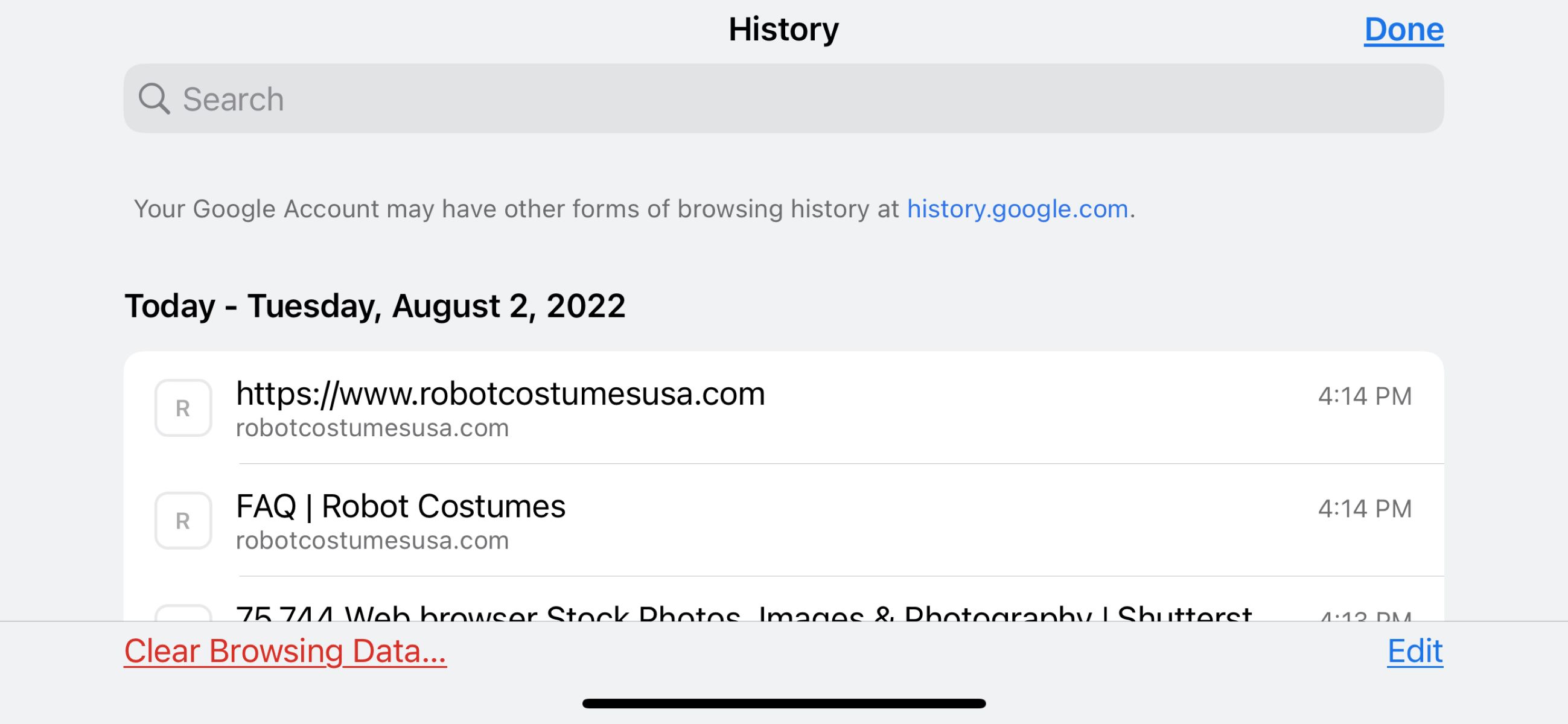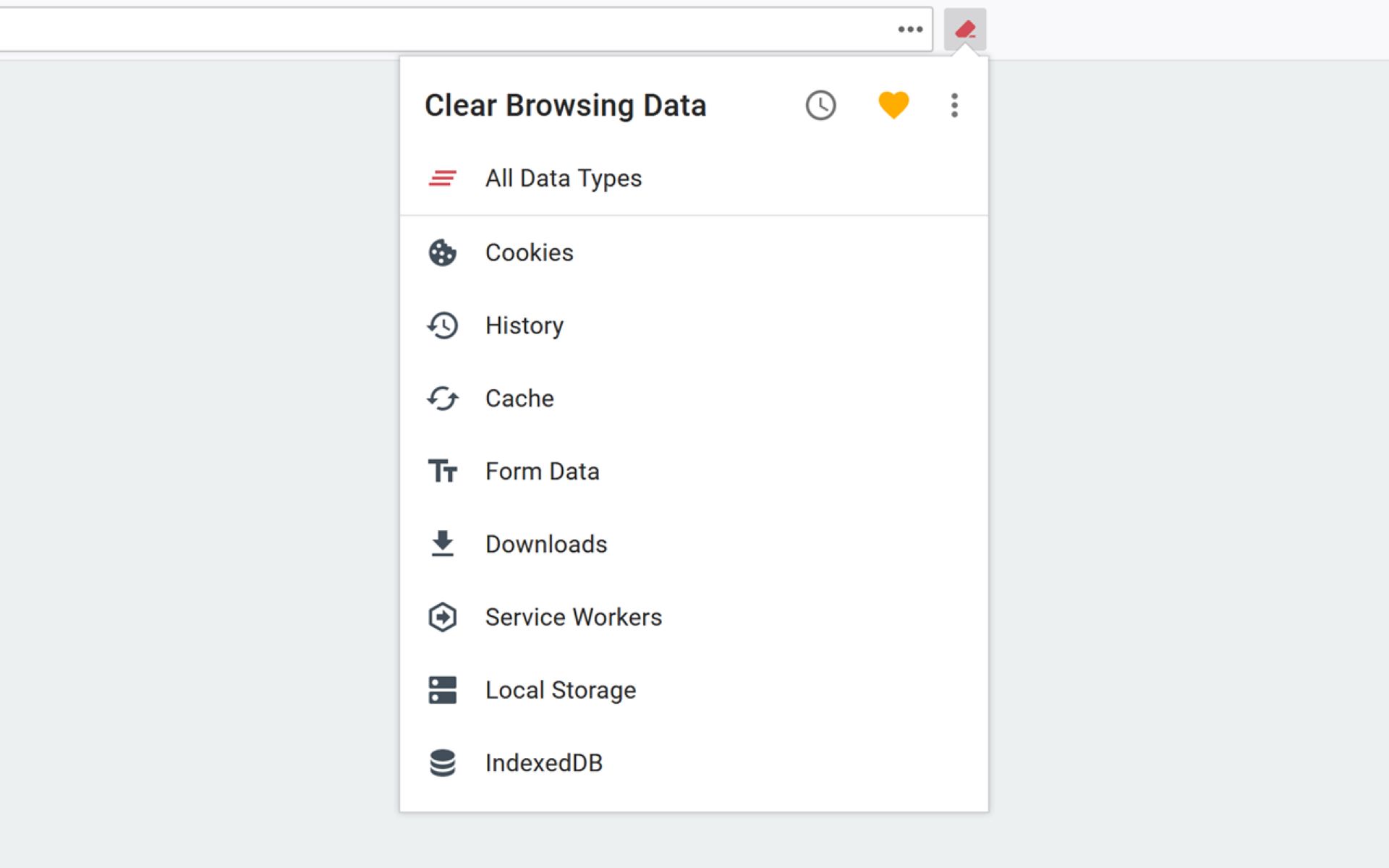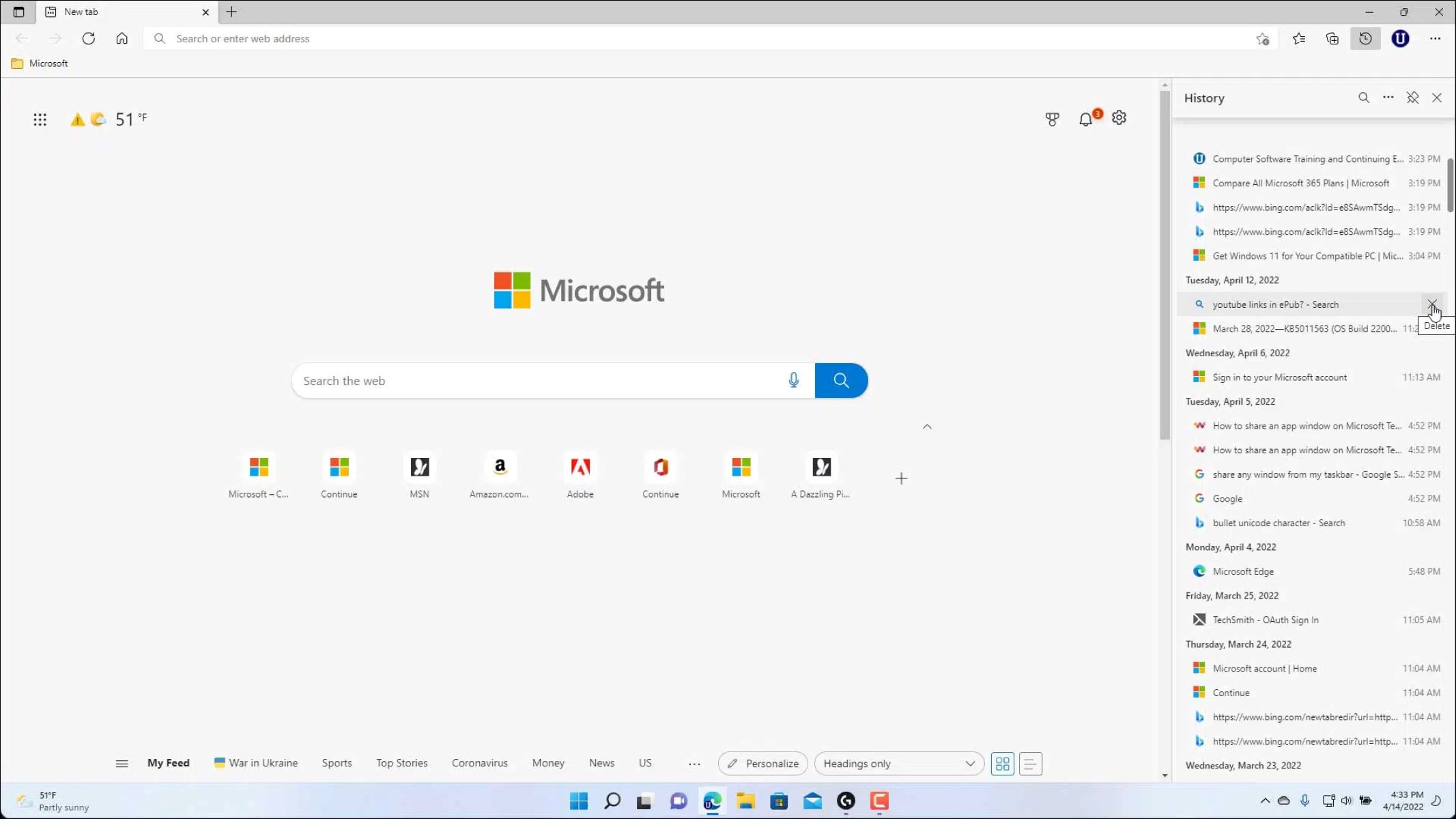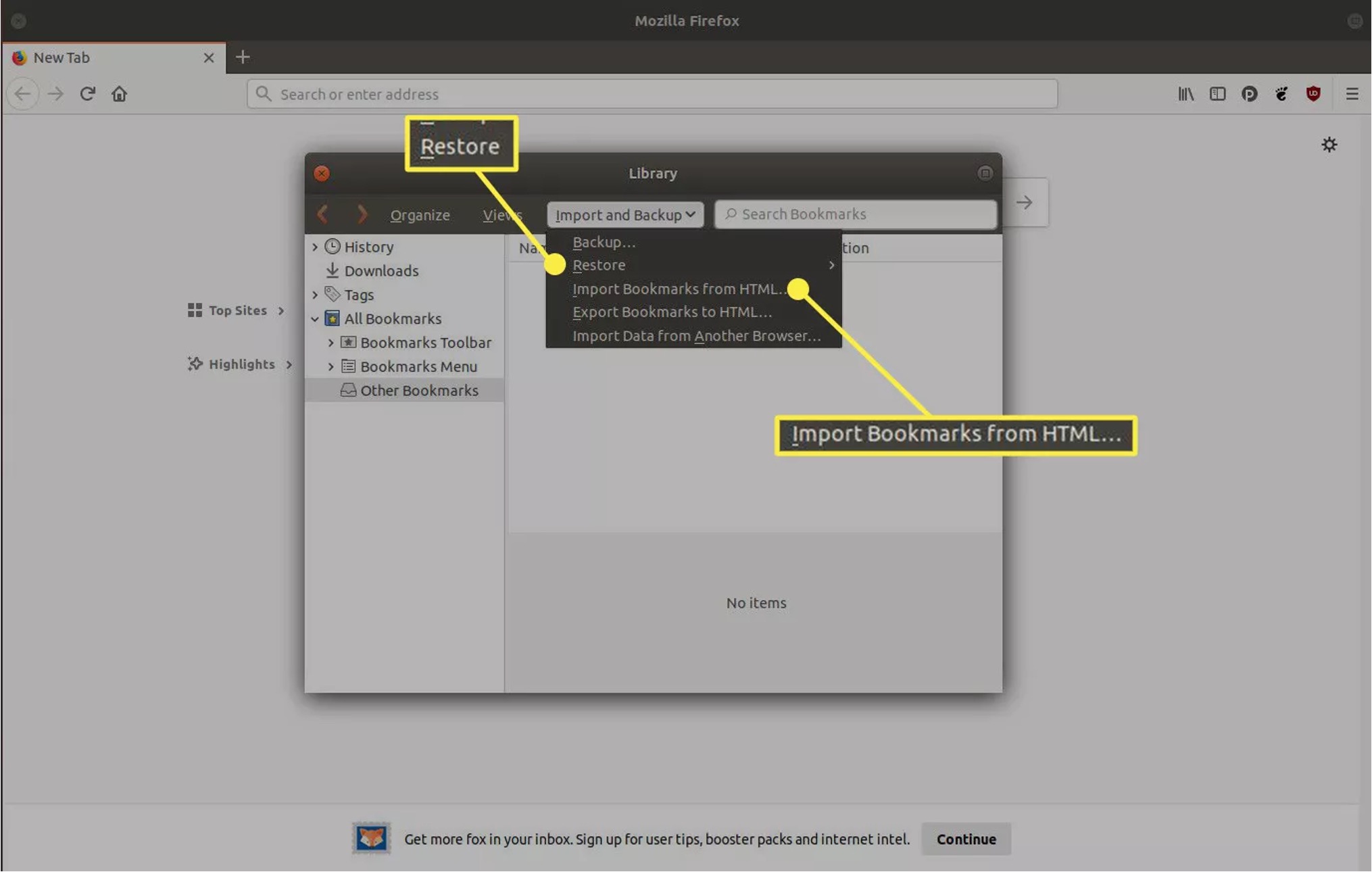Introduction
In today's digital age, web browsers play a pivotal role in our daily lives, serving as gateways to a vast expanse of information and resources. Among the multitude of browsers available, Firefox stands out as a popular choice, renowned for its user-friendly interface, robust security features, and customizable options. As we navigate the virtual realm, our browsing history accumulates a trail of websites visited, searches conducted, and online activities. This historical record not only provides a glimpse into our digital footprint but also serves as a valuable resource for revisiting past web pages, retrieving important information, and tracking online interactions.
However, there are instances when this invaluable browsing history may inadvertently get deleted, whether due to accidental actions, system glitches, or software updates. The sudden disappearance of this historical data can be disconcerting, especially when there is a pressing need to retrieve specific web pages or revisit past online engagements. Fortunately, there are methods available to recover deleted history on Firefox, offering a lifeline to those who find themselves in such a predicament.
In the following sections, we will delve into the significance of recovering deleted history and explore various methods to restore this vital data. Whether it involves utilizing system restore options, employing data recovery software, or harnessing Firefox's built-in recovery features, each approach offers a pathway to reclaiming lost browsing history. Additionally, we will provide insights into preventive measures to safeguard against accidental deletion of history, empowering users to mitigate the risk of losing valuable browsing records in the future.
As we embark on this journey to uncover the means of recovering deleted history on Firefox, it is essential to recognize the intrinsic value of our browsing history and the pivotal role it plays in our digital experiences. By understanding the importance of preserving and retrieving this historical data, we can equip ourselves with the knowledge and tools necessary to navigate the digital landscape with confidence and assurance.
Understanding the Importance of Recovering Deleted History
The browsing history stored within Firefox serves as a digital archive of our online activities, encompassing a chronicle of visited websites, conducted searches, and accessed content. This historical data holds intrinsic value, offering a window into our digital interactions and serving as a repository of information that reflects our online journey. Understanding the importance of recovering deleted history on Firefox entails recognizing the multifaceted significance of this historical record.
Retrieval of Vital Information
Deleted browsing history often contains crucial details, such as previously visited websites, reference materials, or online resources that may have been inadvertently erased. Recovering this data can be pivotal in retrieving specific web pages, accessing previously viewed content, or revisiting online resources that hold relevance to ongoing projects or research endeavors.
Preservation of Digital Footprint
Our browsing history encapsulates a digital footprint, reflecting our online engagements, interests, and interactions. By recovering deleted history, individuals can preserve this digital trail, gaining insights into their browsing patterns, preferences, and past online activities. This historical record can offer valuable insights into one's digital behavior and serve as a reflection of personal interests and professional pursuits.
Restoration of User Experience
Recovering deleted history on Firefox contributes to the restoration of a seamless user experience. By reclaiming lost browsing records, individuals can navigate back to previously visited web pages, retrace their online steps, and regain access to information that may have been inadvertently removed. This restoration of the user experience fosters continuity in online interactions and facilitates the retrieval of pertinent data.
Legal and Investigative Considerations
In certain scenarios, the recovery of deleted browsing history may hold legal or investigative significance. For legal professionals, law enforcement agencies, or individuals involved in digital forensics, the retrieval of deleted history can be instrumental in uncovering evidence, establishing timelines, or reconstructing digital trails pertinent to legal proceedings or investigative matters.
Data Recovery and Privacy Assurance
The recovery of deleted history aligns with data recovery and privacy assurance efforts. By restoring lost browsing records, individuals can safeguard their privacy, mitigate data loss risks, and ensure the integrity of their browsing history. This aspect holds particular relevance in scenarios where accidental deletion may compromise privacy or result in the loss of critical information.
In essence, understanding the importance of recovering deleted history on Firefox encompasses a multifaceted recognition of its value in preserving vital information, maintaining digital footprints, restoring user experiences, addressing legal considerations, and upholding data recovery and privacy assurance efforts. By acknowledging the significance of this historical data, individuals can appreciate the pivotal role it plays in their digital experiences and the compelling reasons to pursue its recovery when inadvertently deleted.
Methods to Recover Deleted History on Firefox
Recovering deleted browsing history on Firefox encompasses a range of methods, each offering a pathway to retrieve vital historical data that may have been inadvertently erased. Whether it involves leveraging system restore options, utilizing data recovery software, or harnessing Firefox's built-in recovery features, these methods empower users to reclaim lost browsing records and restore continuity to their digital experiences.
Using System Restore to Recover Deleted History
System restore functionality, inherent to Windows operating systems, provides a means to revert the system to a previous state, including the restoration of browsing history. By initiating a system restore to a point in time before the deletion occurred, users can potentially recover their deleted browsing history. This method relies on the creation of system restore points, which capture snapshots of the system's configuration and settings, enabling users to roll back to a designated state.
Using Data Recovery Software to Recover Deleted History
Data recovery software, renowned for its capability to retrieve lost or deleted files, can also be employed to recover deleted browsing history on Firefox. These specialized tools are designed to scan storage devices for traces of deleted data, including browsing history files. By utilizing data recovery software, users can initiate comprehensive scans of their system's storage, potentially uncovering remnants of deleted browsing history and facilitating its recovery.
Using Firefox's Built-in Recovery Feature to Recover Deleted History
Firefox incorporates a built-in recovery feature that enables users to restore browsing history from previous sessions. By accessing the browser's history menu and navigating to the "Restore Previous Session" option, users can potentially recover deleted history associated with prior browsing sessions. This feature serves as a convenient and integrated method for restoring lost browsing records directly within the Firefox browser environment.
In essence, these methods offer diverse approaches to recovering deleted history on Firefox, catering to the varied preferences and technical proficiencies of users. Whether through system restore functionality, data recovery software, or Firefox's built-in recovery feature, individuals can leverage these methods to retrieve vital browsing history and mitigate the impact of accidental deletions. By understanding and utilizing these recovery avenues, users can navigate the digital realm with confidence, knowing that mechanisms exist to reclaim lost historical data and preserve their digital experiences.
Using System Restore to Recover Deleted History
System restore functionality, inherent to Windows operating systems, provides a valuable recourse for recovering deleted browsing history on Firefox. This method leverages the system's capability to revert to a previous state, effectively restoring critical system components, including browsing history records that may have been inadvertently deleted.
Initiating the process of using system restore to recover deleted history involves accessing the system restore utility, which enables users to roll back the system to a designated point in time. This designated point, known as a system restore point, captures a snapshot of the system's configuration and settings at a specific moment, serving as a reference for potential restoration.
To utilize system restore for recovering deleted history on Firefox, users can access the system restore utility by following these steps:
-
Accessing System Restore: Navigate to the Control Panel on the Windows operating system and locate the System Restore utility within the System and Security section. Alternatively, users can access the system restore utility by searching for "System Restore" in the Windows search bar.
-
Initiating System Restore: Within the System Restore utility, users can initiate the process by selecting the option to "Restore system files and settings" and proceeding to the next step.
-
Selecting a Restore Point: The system restore utility presents a list of available restore points, each corresponding to a specific date and time when the system's configuration was captured. Users can select a restore point that predates the deletion of browsing history and proceed with the restoration process.
-
Confirming the Restoration: Upon selecting a restore point, users can review the details of the restoration process and confirm their decision to proceed. It is essential to note that initiating system restore will revert the system to the selected restore point, potentially affecting system settings and installed applications.
By following these steps, users can potentially recover deleted browsing history on Firefox by restoring the system to a state where the historical data was intact. It is important to exercise caution when utilizing system restore, as it may impact recent system changes and installed applications. Additionally, system restore may not guarantee the complete recovery of deleted browsing history, as its effectiveness is contingent on the availability of relevant restore points and the extent of system changes since the deletion occurred.
In essence, leveraging system restore to recover deleted history on Firefox offers a systematic approach to potentially reclaiming lost browsing records, providing users with a valuable recourse for mitigating the impact of accidental deletions and preserving their digital experiences.
Using Data Recovery Software to Recover Deleted History
Data recovery software serves as a powerful and versatile solution for retrieving deleted browsing history on Firefox. This method harnesses the advanced capabilities of specialized data recovery tools to scan storage devices, uncover remnants of deleted data, and facilitate the recovery of vital browsing history records.
The process of using data recovery software to recover deleted history entails the deployment of robust and feature-rich applications designed specifically for data retrieval. These software solutions employ sophisticated algorithms to conduct comprehensive scans of storage devices, including hard drives, solid-state drives, and external storage media, in search of traces of deleted data.
Upon initiating data recovery software, users can typically navigate through a series of intuitive steps to commence the scanning process. This involves selecting the target storage device or specific locations for scanning, configuring scan parameters, and initiating the comprehensive scan to identify remnants of deleted browsing history.
As the data recovery software conducts the scan, it meticulously examines the storage device for fragments of deleted data, including browsing history records associated with Firefox. The software's advanced algorithms and deep scanning capabilities enable it to identify and recover remnants of deleted history, potentially restoring vital browsing records that may have been inadvertently erased.
Upon completion of the scanning process, the data recovery software presents users with a detailed list of recoverable items, including deleted browsing history files. Users can then proceed to select and recover the identified browsing history records, effectively restoring the vital historical data that was previously inaccessible.
By leveraging data recovery software, users can benefit from a comprehensive and systematic approach to recovering deleted history on Firefox. This method empowers individuals to proactively retrieve vital browsing records, mitigate the impact of accidental deletions, and preserve their digital experiences with confidence.
In essence, the utilization of data recovery software to recover deleted history on Firefox represents a proactive and effective strategy for reclaiming lost browsing records, underscoring the resilience and versatility of modern data recovery solutions in addressing data loss scenarios.
Using Firefox's Built-in Recovery Feature to Recover Deleted History
Firefox incorporates a built-in recovery feature that serves as a convenient and integrated method for restoring deleted browsing history from previous sessions. This feature offers users a straightforward avenue to potentially recover vital browsing records that may have been inadvertently deleted.
To initiate the process of using Firefox's built-in recovery feature, users can access the browser's history menu, typically located in the toolbar or accessible through the browser's settings. Within the history menu, users can navigate to the "Restore Previous Session" option, which is designed to facilitate the recovery of browsing history associated with prior browsing sessions.
Upon selecting the "Restore Previous Session" option, Firefox leverages its built-in functionality to potentially restore deleted browsing history from the most recent session. This process enables users to reclaim vital historical data, including previously visited websites, conducted searches, and accessed content that may have been inadvertently removed.
The built-in recovery feature within Firefox aligns with the browser's user-centric design, offering a seamless and intuitive method for users to retrieve deleted browsing history directly within the browser environment. By integrating this functionality into the browser's interface, Firefox empowers users to proactively address accidental deletions and restore continuity to their digital experiences.
It is important to note that the effectiveness of Firefox's built-in recovery feature in recovering deleted history may be influenced by various factors, including the frequency of browser sessions, the extent of recent browsing activity, and the presence of relevant historical data within the browser's cache or session records.
In essence, leveraging Firefox's built-in recovery feature to recover deleted history underscores the browser's commitment to user convenience and data accessibility. By providing a streamlined method for restoring deleted browsing history, Firefox enhances the user experience and equips individuals with a valuable recourse for mitigating the impact of accidental deletions, ultimately preserving their digital journeys with resilience and efficiency.
Tips to Prevent Accidental Deletion of History
Preventing accidental deletion of browsing history on Firefox entails implementing proactive measures and best practices to safeguard this vital historical data. By adopting these tips, users can mitigate the risk of inadvertent data loss and preserve their browsing history with resilience and assurance.
-
Regular Backups: Establishing a routine for backing up browsing history can serve as a safeguard against accidental deletion. Users can leverage browser extensions or third-party tools to create periodic backups of their browsing history, ensuring that critical data is preserved and accessible in the event of accidental deletions.
-
Utilize Syncing Features: Firefox offers syncing capabilities that enable users to synchronize their browsing history across multiple devices. By leveraging this feature, users can ensure that their browsing history is replicated and stored across various platforms, reducing the impact of accidental deletions on a single device.
-
Customize Deletion Settings: Firefox provides options to customize the retention period for browsing history. Users can adjust the settings to retain history for extended periods, minimizing the likelihood of accidental deletions due to automatic clearing of older records.
-
Exercise Caution with Clearing Data: When clearing browsing data, users should exercise caution to avoid inadvertently deleting critical history records. Utilizing selective data clearing options and reviewing the items marked for deletion can help prevent the unintentional removal of vital browsing history.
-
Educate Users on Privacy Settings: Educating users on Firefox's privacy settings and the implications of data clearing actions can raise awareness about the importance of preserving browsing history. By fostering a culture of data mindfulness, organizations and individuals can reduce the occurrence of accidental deletions.
-
Implement User Permissions: In organizational settings, implementing user permissions and access controls can mitigate the risk of unauthorized data clearing actions. By restricting the ability to delete browsing history to authorized personnel, organizations can enhance data protection and prevent accidental deletions.
-
Stay Informed About Updates: Keeping abreast of Firefox updates and changes to browsing history management features can empower users to adapt their practices and settings accordingly. Staying informed about updates can help users proactively address any alterations that may impact browsing history retention and deletion.
By incorporating these tips into their browsing practices, users can fortify the resilience of their browsing history, reduce the likelihood of accidental deletions, and preserve this vital historical data with diligence and foresight.












